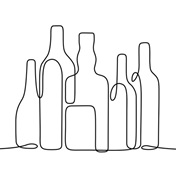Patients who use alcohol for sleep may also be engaging in hazardous drinking, according to results of a survey published in the Annals of Family Medicine.
"If a patient comes in with a chief complaint of insomnia, ask 'What have you tried to help you sleep?' If the patient mentions alcohol, explore that further, listening for evidence of hazardous and/or harmful drinking," advises lead author Dr Daniel C. Vinson from University of Missouri, Columbia said.
Dr Vinson and colleagues used surveys returned by 1699 patients to explore associations between drinking status and sleep problems. They hypothesised that greater levels of alcohol consumption would be associated with self-reported sleep problems.
Drink to fall asleep
Four percent of patients reported drinking alcohol in order to sleep at least once a week, and 8% indicated the same within the last month.
In bivariate and multivariate analyses, there were no significant associations between drinking status and hours slept per night, early insomnia, late insomnia, using medications for sleep, daytime somnolence, or overall sleep quality.
Patients with moderate or hazardous drinking habits were less likely to have sleep apnoea compared with nondrinkers.
However, using alcohol for sleep had a sensitivity of 22.4% and specificity of 94.2% for detecting hazardous drinking (excluding nondrinkers).
The researchers were surprised by the results.
Interesting reactions
Vinson explained: "We hypothesised there would be lots of associations, and when researchers' hypotheses aren't confirmed, our reactions are interesting. Often, we just keep analysing the data in different ways, hoping to find some analysis that confirms what we expected. ('Torture the data till they tell you what you want to hear.') But we simply found what we found. And even when I did the multiple-analyses stuff, I still didn't find anything other than what we reported (which is from the planned, initial analyses)."
He also cautions against over-interpreting the results: "We used a quick and short self-report instrument that didn't drill down much into any item, not even alcohol."
"What I'd like to see," Vinson said, "are prospective studies that use better validated data collection instruments (which are also longer, might require trained interviewers, and hence major funding)."(Reuters Health/ November 2010)
Read more:
Seven hours sleep is optimal
Texting teens: not enough sleep
Deep sleep good for learning




 Publications
Publications
 Partners
Partners










